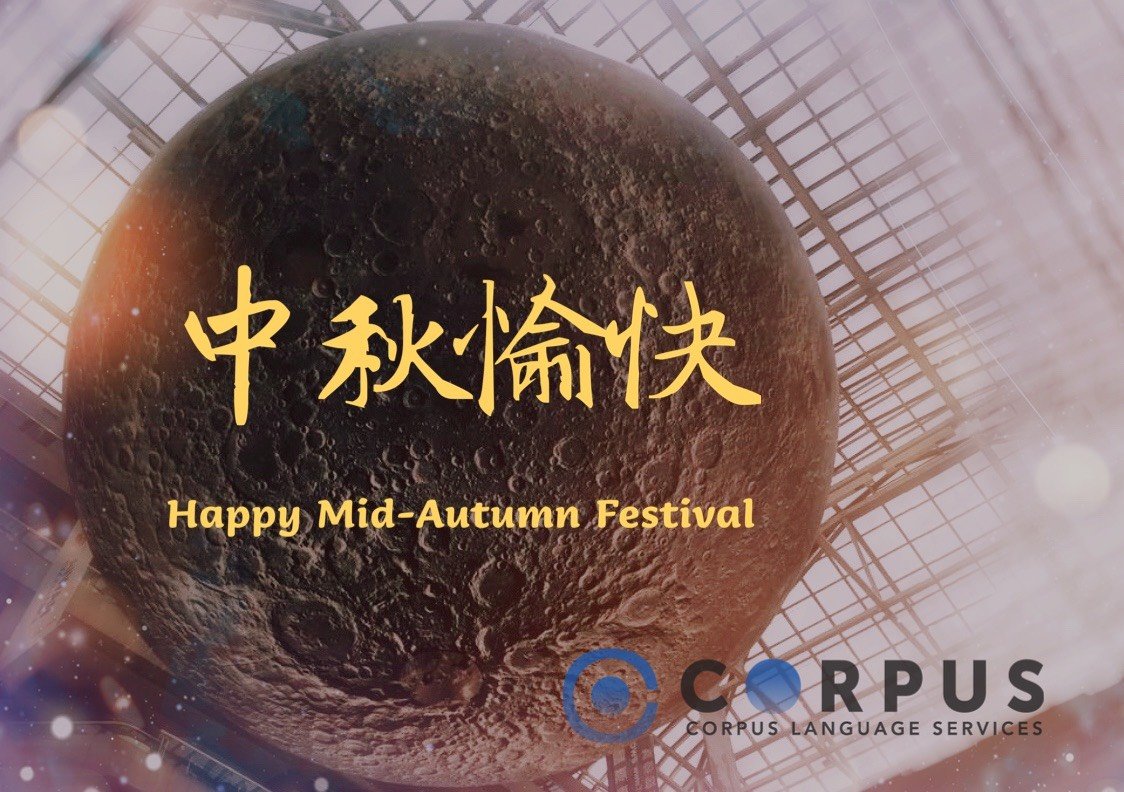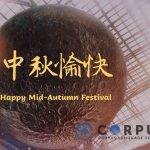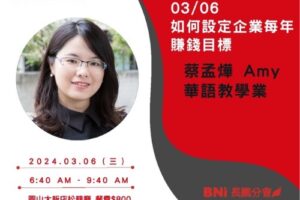Symbols of Moon in Spanish and Taiwanese Cultures
YOUR KEY TO SUCCESS
At Corpus, we believe bespoke cross-cultural learning is key.
Corpus has developed a fresh, innovative yet internationally renowned teaching methodology, delivering a unique, practical and fun educational experience.
Free subscription to access the complete content and a selection of lessons.
Click below to start learning Mandarin!
西班牙和台湾的月亮
Xī bān yá hé tái wān de yuè liàng
台湾和西班牙虽然相隔超过一万公里,但仰望着同一个月亮。西班牙除了周一(lunes)是月亮日(día de la luna)之外,也有许多月亮相关片语。例如:estar de buena/mala luna是「心情好/心情差」的意思,estar en la luna(在月亮上)则是指「成天幻想、心不在焉」。中文也不乏月亮相关俗语,例如「外国的月亮比较圆」,是在嘲讽崇洋媚外,盲目追求外国事物的心态。
Tái wān hé xī bān yá suī rán xiāng gé chāo guò yī wàn gōng lǐ, dàn yǎng wàng zhe tóng yī gè yuè liàng. Xī bān yá chú le zhōu yī (lunes) shì yuè liàng rì (día de la luna) zhī wài, yě yǒu xǔ duō yuè liàng xiàng guān piàn yǔ. Lì rú: estar de buena/mala luna shì `xīn qíng hǎo/xīn qíng chà’ de yì si, estar en la luna(zài yuè liàng shàng) zé shì zhǐ `chéng tiān huàn xiǎng, xīn bù zài yān’. Zhōng wén yě bù fá yuè liàng xiàng guān sú yǔ, lì rú `wài guó de yuè liàng bǐ jiào yuán’, shì zài cháo fèng chóng yáng mèi wài, máng mù zhuī qiú wài guó shì wù de xīn tài.
在台湾会庆祝一个和月亮有关的重要节庆—中秋节。农历八月十五日,人们会团圆赏满月,吃月饼、柚子和烤肉。中秋节是一种丰收节,但它的由来还有一个有趣的传说:嫦娥奔月。从前有十个太阳,导致草木枯死。后羿射下了九个太阳有功,获赠西王母的长生不死药。一日,后羿出门时,有人潜入他家,逼妻子嫦娥交出不死药。嫦娥情急之下,一口气吞了药,便飞到月亮成了仙。后羿知道后伤心欲绝,自此便在嫦娥奔月的八月十五日祭拜妻子,遂演变成中秋节的习俗。这个故事是不是赋予节日一个浪漫的情怀呢?
Zài tái wān huì qìng zhù yī gè hé yuè liàng yǒu guān de zhòng yào jié qìng—zhōng qiū jié. Nóng lì bā yuè shí wǔ rì, rén men huì tuán yuán shǎng mǎn yuè, chī yuè bǐng, yòu zi hé kǎo ròu. Zhōng qiū jié shì yī zhǒng fēng shōu jié, dàn tā de yóu lái hái yǒu yī gè yǒu qù de chuán shuō: Cháng é bēn yuè. Cóng qián yǒu shí gè tài yáng, dǎo zhì cǎo mù kū sǐ. Hòu yì shè xià le jiǔ gè tài yáng yǒu gōng, huò zèng xī wáng mǔ de cháng shēng bù sǐ yào. Yī rì, hòu yì chū mén shí, yǒu rén qián rù tā jiā, bī qī zi cháng é jiāo chū bù sǐ yào. Cháng é qíng jí zhī xià, yī kǒu qì tūn le yào, biàn fēi dào yuè liàng chéng le xiān. Hòu yì zhī dào hòu shāng xīn yù jué, zì cǐ biàn zài cháng é bēn yuè de bā yuè shí wǔ rì jì bài qī zi, suì yǎn biàn chéng zhōng qiū jié de xí sú. Zhè ge gù shì shì bù shì fù yǔ jié rì yī gè làng màn de qíng huái ne?
杨睿珊
科柏斯国际文教机构文化观察员兼翻译顾问,国立台湾大学外国语文学系毕业。自大学开始学西文就爱上西班牙语言和文化,也喜欢看电影、看小说、旅游、学习新事物。
西班牙和台灣的月亮
Xī bān yá hé tái wān de yuè liàng
台灣和西班牙雖然相隔超過一萬公里,但仰望著同一個月亮。西班牙除了週一(lunes)是月亮日(día de la luna)之外,也有許多月亮相關片語。例如:estar de buena/mala luna是「心情好/心情差」的意思,estar en la luna(在月亮上)則是指「成天幻想、心不在焉」。中文也不乏月亮相關俗語,例如「外國的月亮比較圓」,是在嘲諷崇洋媚外,盲目追求外國事物的心態。
Tái wān hé xī bān yá suī rán xiāng gé chāo guò yī wàn gōng lǐ, dàn yǎng wàng zhe tóng yī gè yuè liàng. Xī bān yá chú le zhōu yī (lunes) shì yuè liàng rì (día de la luna) zhī wài, yě yǒu xǔ duō yuè liàng xiàng guān piàn yǔ. Lì rú: estar de buena/mala luna shì `xīn qíng hǎo/xīn qíng chà’ de yì si, estar en la luna(zài yuè liàng shàng) zé shì zhǐ `chéng tiān huàn xiǎng, xīn bù zài yān’. Zhōng wén yě bù fá yuè liàng xiàng guān sú yǔ, lì rú `wài guó de yuè liàng bǐ jiào yuán’, shì zài cháo fèng chóng yáng mèi wài, máng mù zhuī qiú wài guó shì wù de xīn tài.
在台灣會慶祝一個和月亮有關的重要節慶—中秋節。農曆八月十五日,人們會團圓賞滿月,吃月餅、柚子和烤肉。中秋節是一種豐收節,但它的由來還有一個有趣的傳說:嫦娥奔月。從前有十個太陽,導致草木枯死。后羿射下了九個太陽有功,獲贈西王母的長生不死藥。一日,后羿出門時,有人潛入他家,逼妻子嫦娥交出不死藥。嫦娥情急之下,一口氣吞了藥,便飛到月亮成了仙。后羿知道後傷心欲絕,自此便在嫦娥奔月的八月十五日祭拜妻子,遂演變成中秋節的習俗。這個故事是不是賦予節日一個浪漫的情懷呢?
Zài tái wān huì qìng zhù yī gè hé yuè liàng yǒu guān de zhòng yào jié qìng—zhōng qiū jié. Nóng lì bā yuè shí wǔ rì, rén men huì tuán yuán shǎng mǎn yuè, chī yuè bǐng, yòu zi hé kǎo ròu. Zhōng qiū jié shì yī zhǒng fēng shōu jié, dàn tā de yóu lái hái yǒu yī gè yǒu qù de chuán shuō: Cháng é bēn yuè. Cóng qián yǒu shí gè tài yáng, dǎo zhì cǎo mù kū sǐ. Hòu yì shè xià le jiǔ gè tài yáng yǒu gōng, huò zèng xī wáng mǔ de cháng shēng bù sǐ yào. Yī rì, hòu yì chū mén shí, yǒu rén qián rù tā jiā, bī qī zi cháng é jiāo chū bù sǐ yào. Cháng é qíng jí zhī xià, yī kǒu qì tūn le yào, biàn fēi dào yuè liàng chéng le xiān. Hòu yì zhī dào hòu shāng xīn yù jué, zì cǐ biàn zài cháng é bēn yuè de bā yuè shí wǔ rì jì bài qī zi, suì yǎn biàn chéng zhōng qiū jié de xí sú. Zhè ge gù shì shì bù shì fù yǔ jié rì yī gè làng màn de qíng huái ne?
楊睿珊
科柏斯國際文教機構文化觀察員兼翻譯顧問,國立台灣大學外國語文學系畢業。自大學開始學西文就愛上西班牙語言和文化,也喜歡看電影、看小說、旅遊、學習新事物。
Symbols of Moon in Spanish and Taiwanese Cultures
Although Taiwan and Spain are 10,000 kilometers apart, they look up to the same moon. In addition to calling Monday (lunes) the “moon day (día de la luna),” Spain also has many moon-related expressions. For example, “estar de buena / mala luna” means being in a good mood / bad mood, and “estar en la luna (on the moon)” means a person is daydreaming or being absent-minded. There are also plenty of moon-related proverbs in Mandarin. For example, there is one saying: “The moon in foreign countries is particularly round and bright,” which is a way of ridiculing people who blindly pursue foreign cultures.
In Taiwan, people celebrate an important festival related to the moon, the Mid-Autumn Festival. On the 15th day of the eighth month in the lunar calendar, people will reunite with family to watch the full moon and eat moon cakes along with pomelos and barbecue.
Mid-Autumn Festival is a harvest festival, but it is also related to an interesting legend: Chang’e flying to the moon. According to the legend, there were ten suns in the past, making life on Earth miserable. A heroic archer, Houyi, shot down nine suns. As a reward, he was given the elixir of immortality by the Queen of Heaven. One day, when he went out hunting, someone sneaked into his house and forced his wife, Chang’e, to hand over the elixir. In a moment of desperation, she swallowed all of the potion at once. As a result, she drifted to the moon and became the Goddess of Moon. Houyi was heartbroken by the incident. It was the 15th day of the eighth month in the lunar calendar. Since then, he mourned for his wife every year on this day, which later became the custom of the Mid-Autumn Festival. Doesn’t this story give a romantic twist to the festival?
Rena Yang
Rena is a Cultural Observer and Translation Consultant of the Corpus International Cultural and Educational Organization, and a graduate of the Department of Foreign Languages and Literatures of National Taiwan University. She has fallen in love with the Spanish language and culture since she started studying English at the university. Rena also likes to watch movies, read novels, travel, and learn new things.
La luna en la cultura española y la taiwanesa
Aunque Taiwán y España están a más de diez mil kilómetros de distancia, cuando se eleva la vista, se ve la misma luna. En España, el lunes significa “el día de la luna”. También hay algunas expresiones relacionadas con la luna, ej. “estar de buena/mala luna” significa “estar de buen/mal humor”, y “estar en la luna” quiere decir que una persona es despistada.
Por supuesto, en chino también exiten varios dichos sobre la luna, ej. la luna en el extranjero se ve más grande. Esto es similar al refrán español “las manzanas siempre parecen mejores en el huerto del vecino”, pero ridiculiza a las personas que están locas por cosas extranjeras sólo porque son de fuera.
En Taiwán, se celebra un festival relacionado con la luna–el Festival del Medio Otoño. En el día 15 del octavo mes en el calendario chino (normalmente en septiembre), se reúnen las familias y contemplan la luna, comen el Pastel de la Luna y el pomelo chino, y preparan la barbacoa. El Festival del Medio Otoño es una fiesta de la cosecha, pero una otra versión dice que su origen viene del cuento mitológico famoso en China–“La Diosa Chang’e va hacia la Luna”.
Había una vez, existían diez soles en el cielo. Por eso, la tierra estaba seca y estéril. El arquero Hou Yi derribó nueve soles, y la Reina madre de occidente le regaló el elixir de la vida. Un día, cuando Hou Yi estaba fuera, alguien asaltó su casa y exigió que Chang’e, la mujer de Hou Yi, le entregara el elixir. Desesperadamente, Chang’e tomó el elixir. Su cuerpo se volvió ligero como una pluma, y voló a la luna. Cuando descubrió lo que había sucedido, Hou Yi estaba destrozado. Desde entonces, cada año, Hou Yi le ofreció sacrificios a su esposa el día que ella fue a la luna, que era el día 15 del octavo mes en el calendario chino. Esto fue el origen del Festival del Medio Otoño. ¿Qué romántico, no?
Noemí Yang (Rena Yang)
Observadora de cultura y traductora de la Consultoría Lingüística de Corpus. Graduada del Departamento de Lenguas y Literaturas Extranjeras. Desde que empecé a estudiar español en la universidad, me he enamorado de la lengua y cultura española. También me gusta ver películas, leer novelas, viajar y aprender nuevas cosas.







